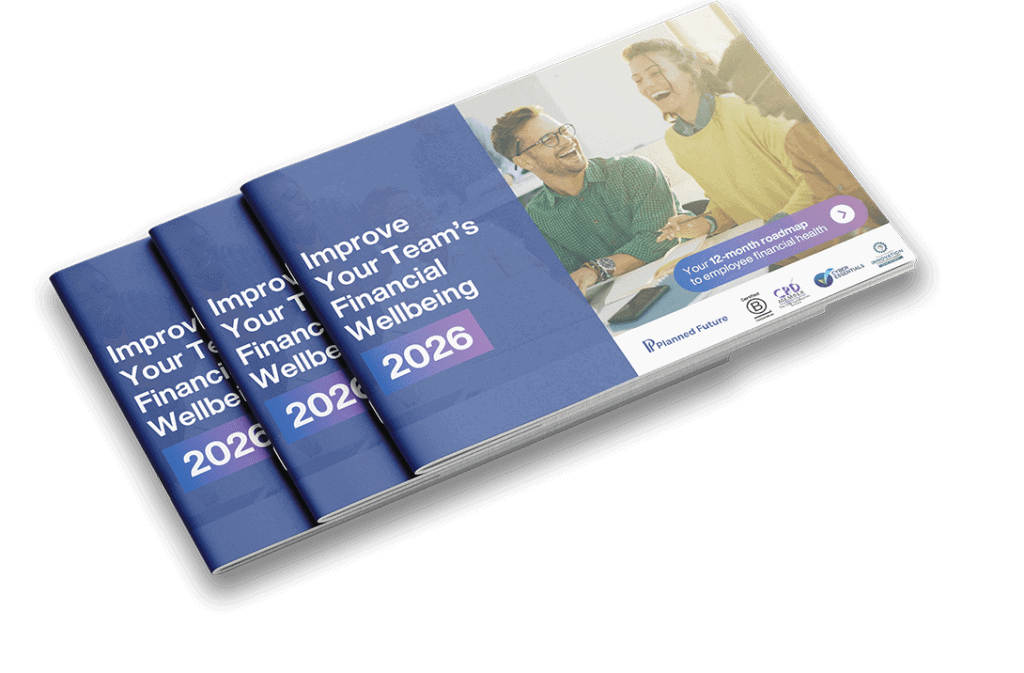How to Implement a Financial Wellbeing Strategy in the workplace?
Financial wellbeing has progressed a long way in recent years. More organisations than ever are starting to take note of this issue and the importance of supporting their employees by improving their financial wellbeing. Looking back to a CIPD study from April 2019, they found that 24% of respondents believe that poor employee financial wellbeing is a significant cause of employee stress in their organisations, with this figure increasing in larger organisations.
When combining this with additional CIPD research in the form of their health and wellbeing at work survey (2019), finding that mental ill health and stress being two of the top causes of long term absence, it’s easy to see why organisations are starting to take note and implementing a financial wellbeing strategy.
But one question is still left unanswered for many employers, how can I implement a financial wellbeing strategy to support my employees, especially over a range of different demographics? It can be a daunting task, especially for larger organisations whose employees can range in ages. To help guide you in the right direction, we have listed a few key points to consider when looking to introduce this employee benefit and guide your in the right direction.
Considerations to make when implementing a financial wellbeing strategy:
Understand your demographics
Understand your demographics, why they might be struggling financially, their worries and what stages of life they are in. One great way to do this is to provide a survey or questionnaire, have you employees tell you what they would like help with.
Consider the type of events you offer
Start to focus in. While younger employees might benefit from money management workshops, older employees will likely start to look at retirement and later life planning. Workshops and onsite financial education events can be a great way for employees to voice their worries and cover topics concerning them.
Consider financial clinics
Additionally, you can look to hold a financial clinic allowing people to speak with a financial adviser on a personal level. However, always remember to check that the presenter and adviser is qualified.
Don't forget employees
Employees who work off site or were away on the day of a workshop. Webinars can be a great cost effective way to make sure these people are covered. Whether the webinar is live or pre-recorded, it will allow these employees to not miss out.
On going financial wellbeing support
Consider offering ongoing support. Workshops & seminars are a great way to help explain and educate your employees, but are only for a limited time. Look to implement measures that will allow employees to voice concerns and ask questions in between workshops. Financial guides, videos and direction can also help people in between your onsite events and lead to a successful financial wellbeing programme.
Review
Review your offering and measure results. Gaining feedback is important to make sure employees are taking away key points. Take a look at feedback from events and if you have any online resources, the kind of questions being asked.
Additional Points to consider
As mentioned in our 3rd point, it is important to make sure that the presenter is qualified. To give an example, all of our Financial Advisers are fully qualified Advisers and active members of the Chartered Institute of Insurance (CII). This allows our clients to be certain that the guidance given is both accurate and up to date.
Another point is to consider how you will promote your financial wellbeing programme and allow as many employees as possible to take advantage of this benefit. At Planned Future, we offer marketing support to help get the word out about your events. Everything from flyers, microsites, emails and more can be produced for you and your team.
Implementing a financial wellbeing strategy can be seen as a daunting task, but it doesn’t have to be. If you would like to learn more about implementing a financial wellbeing programme, just let our team know, we will be happy to help.

